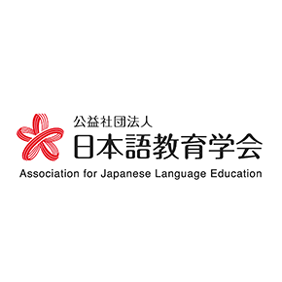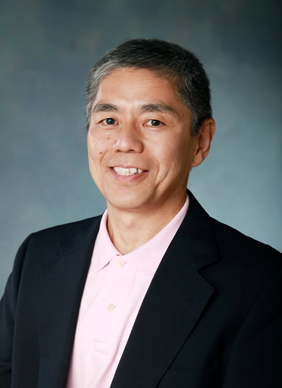The Japan Foundation Award 50th Anniversary Messages from Previous Awardees - Association for Japanese Language Education

1980 The Japan Foundation Special Prize
Association for Japanese Language Education
[Japan]
Message in Commemoration of the 50th Anniversary of the Japan Foundation Awards
I would like to express my congratulations to the Japan Foundation on the 50th anniversary of the Japan Foundation Awards.

I recently had the opportunity to view the 50th anniversary website of the establishment of the Foundation, and on doing so, I was able to renew my understanding of the vigorous activities of the Foundation in numerous areas over the past 50 years, as well as the important role the Foundation has played in the areas of cultural and artistic exchange, Japanese-language education, Japanese studies, and international dialogue.
When one thinks of international cultural exchange centered on Japan, one may typically imagine exchange focused on high-class culture such as the arts, drama, and literature. However, at the same time, Japanese TV dramas and pop culture from Japan, such as manga, anime, and J-Pop, are currently enjoying strong popularity among the younger generation throughout the world. Meanwhile, people around the world are showing a love for healthy and fashionable foods like sushi. Japan is being given attention by the youth around the world as a nation with an exciting pop culture, traditional culture, and advanced manufacturing and technology. And among those youth who are growing familiar with “Japan” are those who wish to learn more about this fascinating nation, to live or work here, to attend a Japanese university or graduate school and stay on, to engage in research on Japan, to find employment in education and research, and maintain a lifelong relationship with Japan. Drawn by the dreams and life paths these young people envision, and in a way to accompany them, those youths begin studying the Japanese language. In other words, they begin to study the Japanese language out of a feeling that Japan is interesting or wonderful, or simply that they like Japan.
Looking back over the past 50 years, the Japan Foundation has made an immeasurable contribution to the spread of Japanese-language education overseas in answer to those expectations, such as the establishment of Japanese courses at overseas centers, support for establishing Japanese courses at overseas universities, local Japanese-language teacher training and networking support, training for overseas Japanese-language teachers in Japan, and, more recently, the provision of online learning materials and online study support. Meanwhile, our own organization, Association for Japanese Language Education, has worked for the further development of Japanese-language education and for the promotion of academic research thereof over its 50-year history as an academic organization comprised of Japanese-language teachers, education specialists, and researchers with a mission to contribute to society based on the experience, knowledge, insights, and viewpoints we have obtained through educational practice and research.
Providing opportunities to learn Japanese as a part of their plurilingual and pluricultural experience is an important part of the Foundation’s cultural exchange promotion activities. For those who begin their study of the Japanese language with vague goals but gradually develop a clear life path, like those described above, as they acquire the language, Japanese is not simply a practical necessity, but a language that will bring them closer to their interests and that will become a companion for the “new me” in life. In other words, the Japanese language is not only involved in their work and daily lives, but is also something that increases their enjoyment of life. It is a language that is also related to living and sharing life with various people they meet and come across at different stages of their lives in relation to Japan.
We all live our lives through involvement with other people. It goes without saying that in addition to language, we also create many other non-verbal channels by which we interact and communicate. But language still plays an extremely important role through which we create a shared reality where we interact, engage, and understand one another, and live together in that shared reality. Language and communication serve not only practical purposes, they also open up our lives for all of us.
Moving forward, Japanese-language education must view Japanese learners as actors in society who live through the use of the Japanese language, rather than persons simply learning how to communicate for their immediate needs or purposes. The education of Japanese must be planned and practiced from a broader perspective that supports them in enjoying more humane and rich lives through interaction with other people.
Association for Japanese Language Education published its system of philosophy when it became a Public Interest Incorporated Association in 2013. As part of that philosophy, our Association expresses its mission in the slogan, “Connect People to Create Society.” As you are aware, the Act on the Promotion of Japanese-Language Education was entered into force in Japan in June 2019. Then, in June 2023, the Act on the Accrediting of Japanese-Language Institutes to Ensure Appropriate and Reliable Implementation of Japanese-Language Education was promulgated to come into effect in April 2024. It is fair to say that these laws represent an official acknowledgment of the importance of Japanese-language education. Accordingly, a guideline on Japanese-language education has also been presented, and a program to develop an educational model is underway. At the same time, a reference framework for the curriculum of teacher education is disclosed and supports for the improvement of curriculum are offered. And various teacher-training programs are now underway. However, the establishment of systems does not mean that education will instantly be improved and relevant to our times. It is the specialists and teachers of the Japanese language who plan and practice the actual education, including the curricula for teacher training. Furthermore, in order for those Japanese-language specialists and teachers to become even better professionals, it is essential to further promote advanced academic research and to engage in the accumulation, sharing, and investigation of educational practices that, together, form the foundation of Japanese-language education. With our mission to “Connect People to Create Society,” Association for Japanese Language Education will continue to provide opportunities for such research and investigation, and contribute to the society based on the foundation of the advanced expertize formed thereby. As Japanese-language education overseas and within Japan are becoming a continuum, the Japan Foundation and Association for Japanese Language Education would have to collaborate and work together in our mutual endeavors more than ever before.
NISHIGUCHI Koichi
President
Association for Japanese Language Education
(Original text in Japanese)
※ The English name of the awardee was changed from The Society for Teaching Japanese as a Foreign Language to the current name, Association for Japanese Language Education, in May 2021.
- What We Do Top
- Arts and Cultural Exchange [Culture]
- Japanese-Language Education Overseas [Language]
- Japanese-Language Education Overseas [Language] Top
- Learn Japanese-language
- Teach Japanese-language
- Take Japanese-Language Test
- Know about Japanese-language education abroad
- The Japanese-Language Institute, Urawa
- The Japanese-Language Institute, Kansai
- Japanese-Language Programs for Foreign Specified Skilled Worker Candidates
- Japanese Language Education for Japanese Children Resident Overseas and for the Descendants of Migrants
- Archives
- Japanese Studies and Global Partnerships [Dialogue]
- JF digital collection
- Other Programs / Programs to Commemorate Exchange Year
- Awards and Prizes
- Publications
